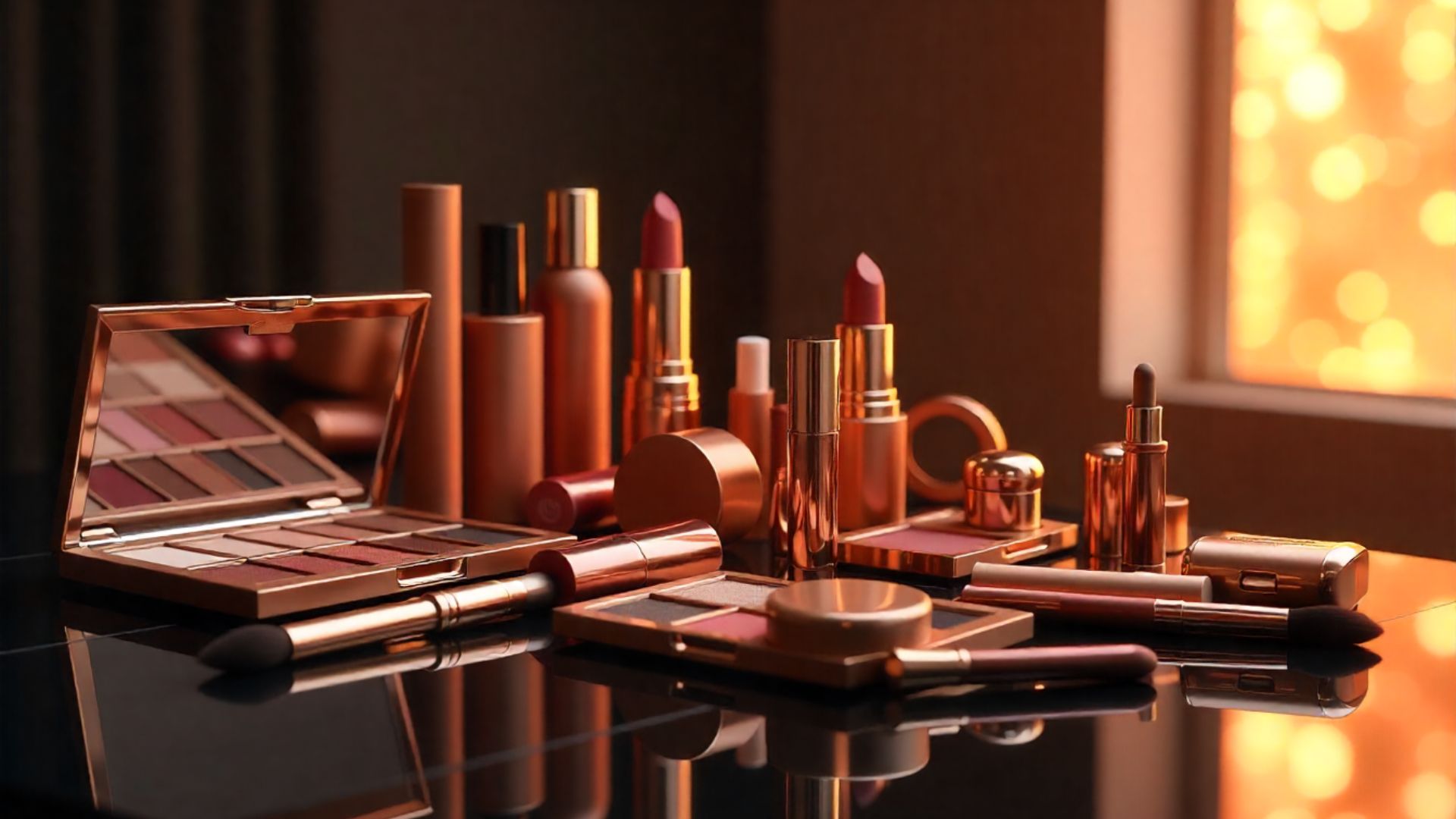Your Guide to Breaking into a Booming Market
Picture this: you’re a cosmetic company eyeing Indonesia’s vibrant beauty market. With a growing middle class and a cultural obsession with skincare and makeup, it’s no wonder you’re eager to get your products on those shelves. But here’s the catch—navigating FDA Indonesia, formally known as Badan Pengawas Obat dan Makanan (BPOM), isn’t exactly a breeze. It’s like trying to perfect a winged eyeliner look on a bumpy bus ride. Daunting? Sure. Impossible? Not at all. Let’s break it down, step by step, so you can get your lipsticks, serums, and BB creams into the hands of eager Indonesian consumers.
Why Indonesia? A Market Worth the Effort
Before we dive into the details of FDA Indonesia, let’s talk about why this market is worth your time. The beauty industry here is thriving—think skyrocketing demand for skincare and cosmetics. Indonesians are skincare fanatics, with local brands like Wardah and international giants like L’Oréal competing for attention. Social media influencers, from Jakarta to Bali, are driving trends faster than you can say “glass skin.” And here’s something to chew on: Indonesia’s halal cosmetic market is massive, thanks to its predominantly Muslim population. If your brand can tap into this, you’re looking at a goldmine.
But to succeed, you’ve got to play by FDA Indonesia’s standards. Trust me, you don’t want to be the brand stuck at customs because of a paperwork slip-up. So, what does it take to get your products compliant and ready to shine?
Understanding BPOM: Indonesia’s FDA Equivalent
The BPOM, or National Agency of Drug and Food Control, is Indonesia’s gatekeeper for cosmetics, food, drugs—you name it. Think of it as the FDA’s stricter cousin who’s very particular about documentation. Unlike the U.S., where cosmetics face fewer hurdles, FDA Indonesia requires every cosmetic product to be registered before it hits the market. No registration, no sales. It’s that simple.
Here’s the thing: FDA Indonesia’s standards reflect the country’s unique cultural and religious landscape. For instance, halal certification is a big deal for many products, especially since most Indonesians are Muslim. Even if your product isn’t marketed as halal, you’ll need to ensure it doesn’t contain ingredients like pork-derived gelatin or alcohol that could raise concerns. Sounds tricky, right? Don’t worry—we’ll get to that.
Step 1: Get Your Product Ready for Registration
Before you ship your products, you need to ensure they’re ready for FDA Indonesia. This starts with your formulation. FDA Indonesia has a list of prohibited and restricted ingredients, much like the U.S. FDA, but with local nuances. For example, mercury and hydroquinone—sometimes found in skin-lightening products—are strictly off-limits. Labeling is another big focus. Your product needs to list ingredients in Indonesian, include an expiration date, and clearly state its purpose (e.g., “moisturizer” or “sunscreen”).
Here’s a quick checklist to get you started:
- Check your ingredients: Cross-reference your formula against FDA Indonesia’s restricted list. No mercury, no pork derivatives, and watch the alcohol content.
- Labeling in Indonesian: Translate your labels accurately. A typo could delay approval.
- Packaging standards: Ensure your packaging is tamper-proof and meets safety requirements.
Pro tip: Work with a local consultant who knows FDA Indonesia inside out. They can spot potential issues before you submit, saving you time and headaches.
Step 2: The Registration Process—Patience is Key
Once your product is ready, it’s time to register with FDA Indonesia. This is where things get bureaucratic, so buckle up. You’ll need to submit a dossier—a stack of documents detailing your product’s composition, manufacturing process, and safety data. If you’re thinking, “Sounds like a lot of paperwork,” you’re not wrong. But it’s worth it to avoid trouble down the line.
You’ll also need a local representative, like a distributor or agent, to handle the submission. Why? FDA Indonesia requires a local entity to be responsible for your product. This could be your Indonesian distributor or a third-party consultant. Here’s what you’ll typically need to provide:
- Product formulation and ingredient list
- Safety and efficacy data (think clinical studies or lab tests)
- Manufacturing details, including Good Manufacturing Practices (GMP) certification
- Labeling and packaging samples
The process can take months, depending on the product category (e.g., sunscreens take longer due to stricter testing). And here’s a heads-up: FDA Indonesia loves documentation, so make sure everything is in order.
The Halal Factor: A Cultural Must-Know
Let’s take a quick detour to talk about halal certification, because it’s a game-changer in Indonesia. While not mandatory for all cosmetics, having a halal certification from LPPOM MUI (Indonesia’s halal certification body) can give your brand a serious edge. Consumers here trust halal-certified products, and it’s a mark of quality that resonates deeply. Think of it like a “vegan-friendly” label in Western markets—it’s not just about the product; it’s about values.
To get halal certification, you’ll need to prove your product is free from haram (forbidden) ingredients and that your manufacturing process avoids cross-contamination with non-halal substances. This might mean auditing your supply chain or tweaking your formula. Yes, it’s extra work, but it’s like adding a shiny gold star to your brand’s reputation.
Step 3: Post-Registration—Staying Compliant
Congratulations, your product’s registered! But don’t celebrate just yet. FDA Indonesia keeps a close eye on cosmetics even after they hit the market. Random inspections or consumer complaints could put your product under scrutiny. If you tweak your formula or packaging, you’ll need to notify FDA Indonesia and possibly re-register.
Here’s a tip: Stay updated on FDA Indonesia’s guidelines. They’re not static, and new standards can emerge, especially around trending ingredients like CBD or retinol. Subscribing to industry newsletters or partnering with a local expert can keep you in the loop.
Why It’s Worth the Hassle
By now, you might be thinking, “This sounds like a lot of work.” And you’re not wrong. But let’s zoom out for a second. Indonesia’s beauty market is growing fast, driven by a young, social-media-savvy population that’s all about self-expression. Whether it’s a hydrating toner for humid Jakarta days or a bold lipstick for Bali’s nightlife, your products have a place here—if you play your cards right.
Plus, getting approval from FDA Indonesia isn’t just about this market. It’s a stamp of credibility that can open doors in other ASEAN markets, like Malaysia or Singapore, where standards are similarly stringent. Think of it as an investment in your brand’s global future.
Wrapping It Up: Your Next Steps
So, where do you go from here? Start by auditing your product line to ensure it aligns with FDA Indonesia’s requirements. Connect with a local distributor or consultant who can guide you through the registration maze. And don’t forget to tap into Indonesia’s cultural pulse—maybe collaborate with a local influencer or highlight your brand’s halal-friendly features.
Navigating FDA Indonesia might feel like threading a needle, but with the right preparation, it’s totally doable. You’re not just launching products; you’re building trust with millions of beauty enthusiasts. Ready to make your mark in Indonesia? Go for it—the market’s waiting.



